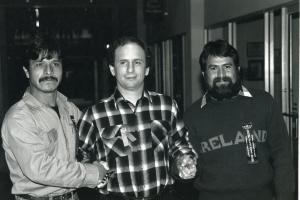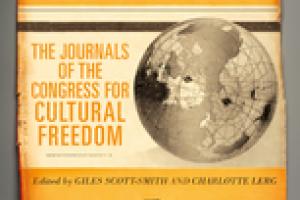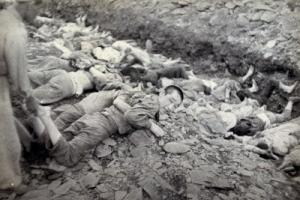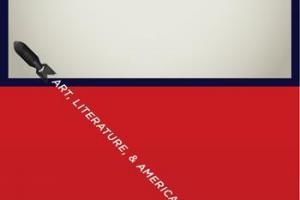How the Red Scare Shaped the Artificial Distinction Between Migrants and Refugees
In These Times
 The author queries the existence of bad readers, linking causes not to illiteracy or injuries of class or the diffusion of mass culture, but to a Cold War literary trend sporting "an abundance of paraliterary works," such as memoirs, diaries, biographies, diplomatic studies, and feature reports as primers for engaging with literary texts as seemingly historically accurate yet stressing outcomes and expectations consonant with systemic social ends.
The author queries the existence of bad readers, linking causes not to illiteracy or injuries of class or the diffusion of mass culture, but to a Cold War literary trend sporting "an abundance of paraliterary works," such as memoirs, diaries, biographies, diplomatic studies, and feature reports as primers for engaging with literary texts as seemingly historically accurate yet stressing outcomes and expectations consonant with systemic social ends.
 On the 100th anniversary of the Russian Revolution, the author takes aim at the narrative that socialism crumbled in the Soviet Union under its own weight, brought about by inherent weaknesses and contradictions of socialism. Instead the case is made that a concerted and relentless 10-year secret war by the Reagan Administration so weakened the Soviet economy and Soviet psyche, along with missteps by the Soviet leadership, that socialism was overthrown.
On the 100th anniversary of the Russian Revolution, the author takes aim at the narrative that socialism crumbled in the Soviet Union under its own weight, brought about by inherent weaknesses and contradictions of socialism. Instead the case is made that a concerted and relentless 10-year secret war by the Reagan Administration so weakened the Soviet economy and Soviet psyche, along with missteps by the Soviet leadership, that socialism was overthrown.
 Delegates to the Duluth AFL-CIO Central Labor Body passed a resolution calling on the national AFL-CIO to release sealed documents on its history with AIFLD, the American Institute for Free Labor Development. In 1992, workers at a Ford assembly plant in Mexico were attacked after a strike, leaving 12 workers wounded and one dead. Questions remain that have not been answered about AIFLD's role in what happened.
Delegates to the Duluth AFL-CIO Central Labor Body passed a resolution calling on the national AFL-CIO to release sealed documents on its history with AIFLD, the American Institute for Free Labor Development. In 1992, workers at a Ford assembly plant in Mexico were attacked after a strike, leaving 12 workers wounded and one dead. Questions remain that have not been answered about AIFLD's role in what happened.
 Delegates to the Duluth AFL-CIO Central Labor Body passed a resolution calling on the national AFL-CIO to release sealed documents on its history with AIFLD, the American Institute for Free Labor Development. In 1992, workers at a Ford assembly plant in Mexico were attacked after a strike, leaving 12 workers wounded and one dead. Questions remain that have not been answered about AIFLD's role in what happened.
Delegates to the Duluth AFL-CIO Central Labor Body passed a resolution calling on the national AFL-CIO to release sealed documents on its history with AIFLD, the American Institute for Free Labor Development. In 1992, workers at a Ford assembly plant in Mexico were attacked after a strike, leaving 12 workers wounded and one dead. Questions remain that have not been answered about AIFLD's role in what happened.
 The Congress for Cultural Freedom (CCF) was a well-known Cold War era CIA-sponsored organization whose role was to promote an international anti-communist, pro-US cultural policy. This latest study examines the well-funded and influential intellectual periodicals the CCF bankrolled all over the world.
The Congress for Cultural Freedom (CCF) was a well-known Cold War era CIA-sponsored organization whose role was to promote an international anti-communist, pro-US cultural policy. This latest study examines the well-funded and influential intellectual periodicals the CCF bankrolled all over the world.
 The Korean War was central to the militarization of our society and to the creation a national security state. It was an essential element in fostering racism, sexism and in the cutting of social programs - creating growing inequality. Today, the threat of a cataclysmic war between Washington and North Korea cannot be discounted. It is vital for the US public to know that North Korea has been asking for a peace treaty with Washington and Seoul for sixty-four years.
The Korean War was central to the militarization of our society and to the creation a national security state. It was an essential element in fostering racism, sexism and in the cutting of social programs - creating growing inequality. Today, the threat of a cataclysmic war between Washington and North Korea cannot be discounted. It is vital for the US public to know that North Korea has been asking for a peace treaty with Washington and Seoul for sixty-four years.
 Hit that old song again, loud and clear! "Over there, over there, Send the word, send the word, That the Yanks are coming, the Yanks are coming." Yes, sirree! Shades of 1918 and the Battle of the Marne! Shades of 1944 and the beaches of Normandy! But no, not just shades and not just words have already been sent. The U.S. is sending significant military assets to Germany, and to countries bordering Russia.
Hit that old song again, loud and clear! "Over there, over there, Send the word, send the word, That the Yanks are coming, the Yanks are coming." Yes, sirree! Shades of 1918 and the Battle of the Marne! Shades of 1944 and the beaches of Normandy! But no, not just shades and not just words have already been sent. The U.S. is sending significant military assets to Germany, and to countries bordering Russia.
 At first glance, modern art and contemporary imperialism make strange bedfellows. The book under review both charts the history of the CIA's work in promoting US corporate interests through its manipulation of culture--what was then called cultural diplomacy-- while also working to define modernism. The reviewer congratulates the author on his first task, but criticizes him on the second.
At first glance, modern art and contemporary imperialism make strange bedfellows. The book under review both charts the history of the CIA's work in promoting US corporate interests through its manipulation of culture--what was then called cultural diplomacy-- while also working to define modernism. The reviewer congratulates the author on his first task, but criticizes him on the second.
Spread the word